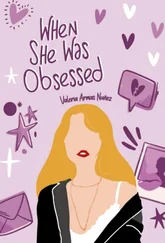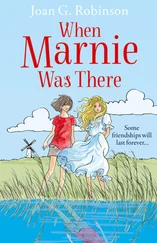And BritPop was coming home at a time, during the slow recovery from the Recession of 1990, which had seen the end of designer elitism and the fetishing of new technology as a viable chassis for the pop and Fleet Street style press. As the adult heirs of Thatcher’s Britain, more or less force-fed the reality and consequences of rampant cultural materialism, it seemed as though the BritPop kids could only look back to an England before Prozac and a pop before post-modernism. As their one-word names suggested, these groups were half in love with the simplicity of a Sixties childhood or Seventies rites of passage, when the colours on colour TV were too hot to watch without eye-strain, and the tank-topped dolly birds of situation comedy were bubbling with suggestiveness to the damp innuendo of their mutton-chop-sideburned suitors. Hence the assertion by Simon Reynolds, in his essay on BritPop for Frieze magazine, that the movement could not justify its label as ‘the new Mod’ because it was based almost entirely on personal and cultural nostalgia. The original Mods would sooner have handed back their button-down shirts than admit to a nostalgia for anything.
Partly an infantilist comedy of recognition, and partly a defiant rejection of cultural anxiety, BritPop put forward a pop ethos that Blur summed up in the title of their CD, Modern Life is Rubbish . With a founding theology of apolitical infantilism, the movement had distanced itself from both the multiculturalism of dance music and the white nihilism of grunge’s screamed de profundis from the teenage bedrooms of middle-class America. What BritPop promised, with a disingenuous simplicity that belied its subtle protest, were some catchy tunes and a rattling good time.
As such, amid the fiscal neurasthenia of the early 1990s, in a pop cultural climate that revived archaic notions of gender and sexuality by turning young men into lads and young women into ‘babes’, BritPop was attempting to reclaim a lost innocence on the one hand, but indulging a new hedonism on – or with – the other. Or, to quote Blur, the complexities of sexual politics could be reduced to the seemingly infinite chant of ‘Boys who like girls who like boys’, and so on. And so BritPop, in many ways, was like a suburban teenage party as it might be reconstructed by today’s young adults from their memories of youth.
But despite its seeming espousal of a wanton dumbness, a few BritPop tracks were both musically accomplished and lyrically clever.
For all its opacity and pouting, the movement produced some glorious pop moments, from Pulp’s ‘I Want to Live Like Common People’ to the thunderous title track of Oasis’s second CD, ( What’s the Story) Morning Glory , which confounded its detractors with their impassioned articulations of defiance in the face of modern life’s rubbish. At their best, these were serious and sincere pop songs, which used archaic formats and styling to pass comment on society as they found it. The message, in BritPop, was subordinate to the medium – a neat reversal of the up-front conscience raising of traditional protest songs.
This mixing of intentions was much in evidence on Pulp’s controversial Sorted for Es and Whizz , which was seized upon by anti-drugs lobbyists to represent a massive misjudgement on the part of the group with regards to its ambiguous handling of a sensitive subject. It might have been one small step for Jarvis Cocker on to Michael Jackson’s heavily defended stage at ‘that’ awards ceremony, but it was a mighty leap for BritPop as the scourge and cartoon folk devils of the transatlantic pop establishment. Rooted in the past but sniping at the present, BritPop made its political points by never referring to politics. Noel or Damon might offer a cursory nod to New Labour, but there was none of the community knees-up and flag-waving which had typified the politicized pop events laid on by Red Wedge or Rock Against Racism during the early years of the 1980s. Rather, the politics of BritPop were summed up in the lyrics of Oasis’s ground-breaking single ‘Whatever’ (1994), with its demand for personal freedom – ‘I’m free, to do whatever I, whatever I choose,’ – being snarled by Liam over Noel’s evocative homage to the reversed orchestration on the Beatles’ psychedelic nursery rhyme of 1967, ‘I am the Walrus’. And, ironically, this plea for individualism would breed a new breed of conformism within BritPop’s massive fan base. In the end, the democracy between the performers and fans that punk had attempted to instigate, and that dance music simply took for granted, was wholly dismantled by BritPop’s reawakening of an earlier rock and roll orthodoxy. Jarvis and Co. might have been the Citizen Smiths of modern Britain, but their triumph lay in a powerful coalition between media and marketing.
As BritPop spilt over into the ‘BritCulture’ of BritArt and the heavily over-mediated ‘neo-Swinging London’, as championed by British glossy magazines from GQ to the Telegraph Magazine and Elle , so a new aristocracy of wholly metropolitan socialites, art dealers, PR gurus and restaurateurs would benefit from the mini-boom. For Noel and Liam Gallagher, from the depressed suburb of Burnage, south Manchester, there must have been a delicious sense of victory in realizing that the old escape route from working-class drudgery through football or pop was still open – and it could still make the toffs dance to their tune. As is traditional in English popular culture, from Mick Jagger’s charming of the British aristocracy, the yobs were calling the shots to the snobs. Hence Noel Gallagher, on the television programme ‘TFI Friday’, displaying his neatly shoed foot to a fawning Chris Evans and barking the one word, ‘Gucci’. BritPop had not merely come home, it was thinking of buying the house. Which was rather why Liam Gallagher cancelled an American tour.
What did become evident, however, was that by invoking both the sound and sensibility of English popular culture of earlier eras – be that the High Psychedelia of Sixties opulence or the cheerful cheesiness of Seventies kitsch – the ultimate destination of BritPop’s targeted revivalism was a kind of ‘virtual’ pop, in which the stars and the fans appeared like holograms of their distant and mutated originals. And, ironically, the Beatles themselves would release what amounted to a ‘virtual’ single, ‘Free as a Bird’, with Lennon’s vocals collaged into new material, just as Oasismania was nearing its peak. With a sigh of relief and a power surge on the National Grid, the country was once more united in its traditional twin obsession with northern working-class pop and the Royal Family – Princess Diana having screened her ‘Panorama’ special just minutes after the world première of the Beatles’ virtual video. This, if ever there was one, was a triumph for Sixties revivalism, and the Beatles had descended as though from Pop Heaven to anoint Noel and Liam – within air-space of Royalty – as the successors to the original BritPop throne.
BritPop, as a media phenomenon attendant on the supposed rivalry between Blur and Oasis, had arrived at a time when years of Conservative government had all but conditioned several generations of young people into believing that politics were irrelevant – save as a distant force of despotism, reflexively acknowledged in a half-hearted way to challenge the legality of raves or keep homeless people in the streets. Now, it would seem as though the maturing establishment of BritPop can either follow the formulaic patterns of rock orthodoxy – the ‘difficult’ new album, solo projects, rumours of overdose, and, to quote Blur, ‘a big house in the country’ – or batten down the hatches in the face of the Spice Girls and the pre-teen pop parade.
Читать дальше












